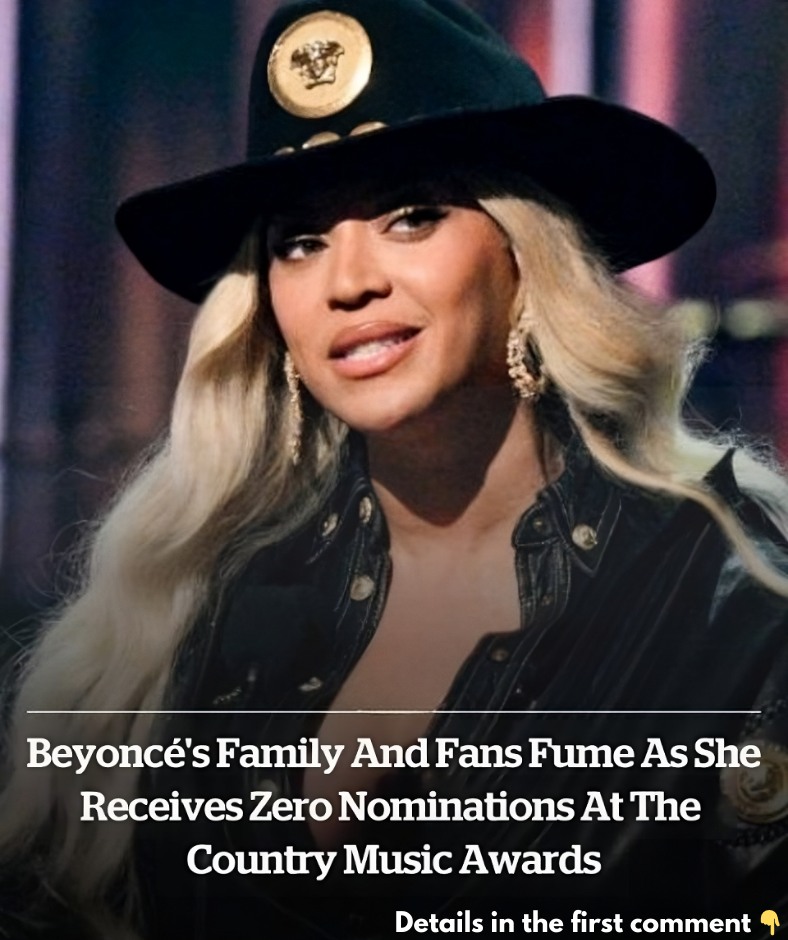The CMA snub didn’t just upset Beyoncé’s family—it also outraged her loyal fan base. Social media platforms like X (formerly Twitter) exploded with criticism directed at the CMAs. Fans voiced their frustrations, pointing out the groundbreaking achievements of Cowboy Carter and Beyoncé’s undeniable influence on country music. One fan tweeted, “The album is a masterpiece across all genres, and the CMA missed an opportunity to recognize one of the best works of the year.”

Even music icons, such as Dionne Warwick, weighed in on the controversy. Warwick called the lack of nominations “absolutely ridiculous,” while emerging Black country artist Shaboozey praised Beyoncé for “opening doors for us and giving us one of the most innovative country albums of all time.” Beyoncé’s work has resonated deeply with many, symbolizing more than just personal success—it represents a cultural milestone for Black representation in country music.
Cowboy Carter’s collaborations with country legends like Dolly Parton and Willie Nelson were not just about crossing genres—they were about bridging generational and cultural gaps in the country music landscape. Beyoncé herself has spoken openly about the challenges she faced in entering the country music scene, which she alluded to in 2016 during her controversial CMA performance with The Chicks. That performance received backlash, much like her foray into country music with Cowboy Carter.
Despite the CMA snub, Beyoncé has remained resilient, focused on her artistic vision. She has always pushed boundaries and redefined genres, and Cowboy Carter is no exception. For Beyoncé, the album was not about fitting into the country music mold—it was about creating a work that reflected her unique voice and expanded the genre’s possibilities.
As she reflected on the album, Beyoncé said, “The joy of creating music is that there are no rules. The more I see the world evolving, the more I felt a deeper connection to purity.” Her words echo her unwavering belief in the power of music to transcend boundaries and inspire change.
A Missed Opportunity for the CMA, A Win for Cultural Change
The 2024 CMA’s failure to recognize Cowboy Carter is a glaring omission that has sparked necessary conversations about racial bias, inclusivity, and the future of country music. While the CMA may have ignored Beyoncé’s contributions, her impact on the genre is undeniable. Cowboy Carter broke records, shattered stereotypes, and opened doors for more diversity in country music. Its legacy will continue to inspire future artists, even if the industry isn’t ready to fully acknowledge it.
Beyoncé’s resilience, artistry, and boundary-breaking approach to music have already changed the country music landscape. Though the CMAs may have missed a golden opportunity, the cultural shift that Cowboy Carter represents is a win for music, diversity, and the ongoing push for inclusivity in the industry.



